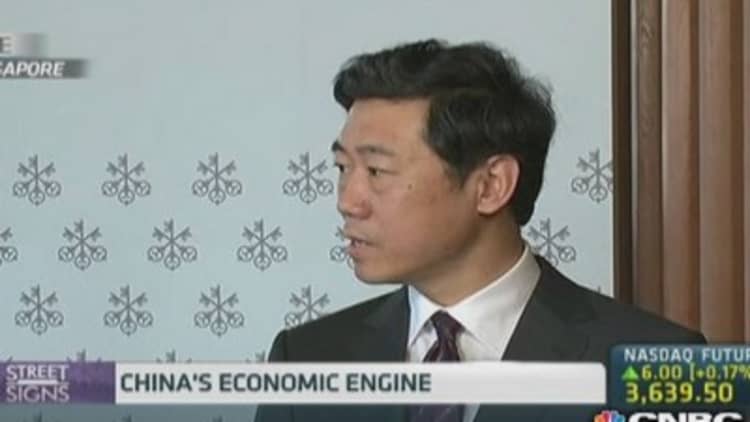
Parts of China's banking sector should be monitored carefully and more trust product defaults are likely later this year as the economy stabilizes, a former advisor to China's central bank told CNBC.
China's shadow banking sector is viewed as one of the greatest risks to the world's second biggest economy and last month Beijing was reported to have issued stricter rules governing trust companies to counter risks to the financial system.
Read More Moody's turns negative on China property
Trust companies are non-bank lenders that raise money by selling high-yielding investments called wealth management products and then use the proceeds to fund loans to borrowers that are considered risky such as real-estate developers or local governments.
"It is a problem, especially with shadow banking, specifically the trust products sold through commercial banks," Li Daokui, an economist at Tsinghua University and a former adviser to China's central bank, said referring to concerns about non-performing loans and high local government debt.
"Overall, I wouldn't worry about non-performing loans, however certain segments of the banking sector should be carefully watched," Daokui, told CNBC on the sidelines of a UBS summit in Singapore.
Read MoreVietnam consideringlegal action against China
Assets under management at Chinese trust firms rose to $1.8 trillion at the end of last year. Trusts overtook insurance companies in 2013 to become the largest sector of China's financial system behind commercial banks, according to a report by Reuters.
Asked whether this meant China would allow some trust products to go bankrupt, he said: "I do expect this to happen towards the end of the year when the economy gradually stabilizes. Currently dealing with this problem would amplify pessimistic expectations in the market place so they [the authorities] would only do it afterwards."
Read MoreUnder Modi, can India's economy take on China?
Several high-profile defaults on trust products earlier this year based on loans to struggling coal producers fanned worries about systemic risks in China.
The country's economy has slowed this year, triggering government stimulus measures to help support growth.
There are some signs that those measures are having an impact with HSBC's flash China Purchasing Managers' Index rising to 49.7 in May from 48.1 in April, showing the best performance for factory activity in five months.
Read MoreChina factory activity has best showing in 5 months
"Among many signals, I believe this (the HSBC PMI) is one of them indicating that the economy is gradually stabilizing," Daokui said.
"A major concern among the policy community since the start of this year is how to stabilize the economy because a further slide down would amplify risks including financial market and property risks," he added.
Daokui expects full-year economic growth in China at 7.6 percent. Beijing has an official growth target of 7.5 percent for 2014.

